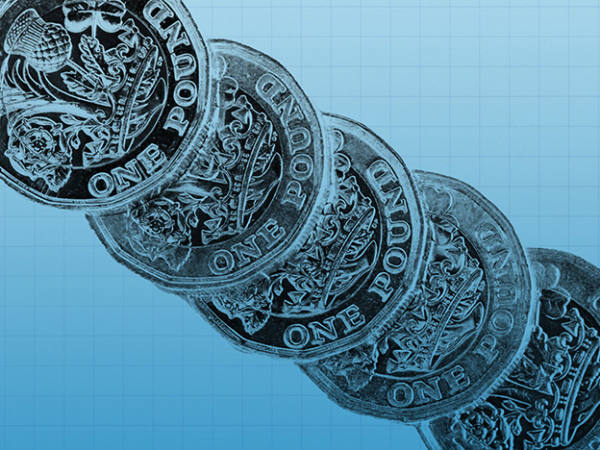The state pension should be a huge part of retirement planning, even when it seems a measly amount. The benefit is guaranteed and is normally increased by at least inflation every year. While it’s unlikely to be enough to fund your whole retirement, it is effectively the most secure income one can have after they stop working.
A comfortable retirement, with three weeks abroad in Europe a year and a £144 weekly food shop, requires a single person to have an annual income (net of tax) of £37,300, according to the Pensions and Lifetime Savings Association, a trade body. That’s £26,700 income a year to find on top of the maximum state pension of £10,600 for 2023-24. A couple need £54,500, leaving them £33,300 short assuming they both receive the full state pension.
But to ensure you have enough income, it’s important to explore how the state pension affects retirement planning. It will change the decisions you make regarding how you use your other pension pots. Ian Millward of Candid Financial Advice explains: “Most people have no choice to work until state retirement age but even for those lucky enough to contemplate early retirement, the state pension is crucial to both their security and decision making.”
The tax status of different sources of income should play a huge part in planning. Income from a private pension, a final salary defined benefit pension, an annuity and the state pension are classed as income; therefore liable for income tax. Assuming the state pension eats up most of your £12,570 personal tax allowance, where the rest of your income comes from must be planned appropriately.
Becky O’Connor, director of public affairs at PensionBee, an online pension provider, says: “Even if tax efficiency isn’t high up on your priority list while working, when you are retired, it should be. You now have a finite pot of money to protect for as long as you need it.”
The personal tax allowance threshold is £12,570 – and is frozen at this level until at least 2026. You can receive your full state pension and still have some income you can take each year tax free. For example, someone receiving a full state pension of £10,600 a year could take £1,970 this tax year and still not face an income tax bill on this.
If it is from a private pension, this is liable to tax. Alternatively, you could take income from dividends, if you own shares in a company. Beyond the personal allowance, from April £1,000 of dividends can be taken without paying tax. This will fall to £500 in April 2024.
Ms O’Connor adds: “From April, you’ll have £13,570 to take as income without paying tax. Then, if you have investments or cash in an Individual Savings Account, you won’t have to pay any tax on what you take from it.”
Can the state pension help me retire early?
Yes, and no. Some people will retire early knowing they don’t have enough money and expect to run down their existing savings, pensions and investments, relying on their state pension to rescue them later.
Mr Millward says: “Life is short and there is absolutely nothing wrong with that plan as long as you have done the maths and know that in the long run everything will be ok.
“The dilemma often comes in trying to strike a balance of how much to invest and how much to retain as cash. Invest too much and it can be very damaging if you need to draw capital when markets are down. Keep it all as cash and your money may never work hard enough to protect you.”
When retiring early, it’s important to draw on investments that are subject to income tax, even if you don’t need the income, because the state pension will later soak up most of your personal allowance. Colin Low, managing director of Kingsfleet Wealth, says there’s a handy way to draw from your pension tax-free, saving the income for a later date. It involves using your 25 per cent tax-free lump sum (LINK) and drawing income at the same time.
He explains: “If you’re living off the tax free lump, you could also draw an income from your pension, and may as well draw £12,570 from a Sipp every year and not pay income tax on it and stick it in the bank or an Isa.”
But wealthier people retiring early with large DC pensions and plentiful Isas should have an eye on reducing their inheritance tax bill. Helen Morrissey, senior pensions and retirement analyst at Hargreaves Lansdown says: “It may be the case that you choose to access your Isas first for income and defer taking your pension for as long as possible. This also has the potential to save on inheritance tax as pensions can be passed to beneficiaries tax free.”
Should I defer the state pension?
The very wealthy might not need their state pension at all but deferring it is not always the right choice.
Mr Millward says: “If they can manage without it for a few years, most people’s first instinct is to defer taking it – viewing the increase as some sort of bonus or pay rise. This is usually a false logic, and the increase simply reflects the income you won’t receive.”
Your state pension will automatically be deferred until you claim it and increase by the equivalent of one per cent for every nine weeks you defer. The extra amount is paid with your regular State Pension. But Mr Millward says: “You need to live into your early 80s to make that a good decision.”
The increase in income could mean you have to pay more income tax at higher rates. However, Mr Low says: “I’m of the view that a bird in the hand is best. It’s better to take it and deal with any related tax issues. You wouldn’t turn down a pay rise at work.”
You can also put unspent state pension payments into a self-invested personal pension. This will help with estate planning. Mr Low explains: “The contribution is capped if you’re not earning. But you can put £2,880 a year into a Sipp. It’s then grossed up to £3,000 and is outside your estate. If you started doing this at 67 and did it for 15 years it can be a significant sum.”











